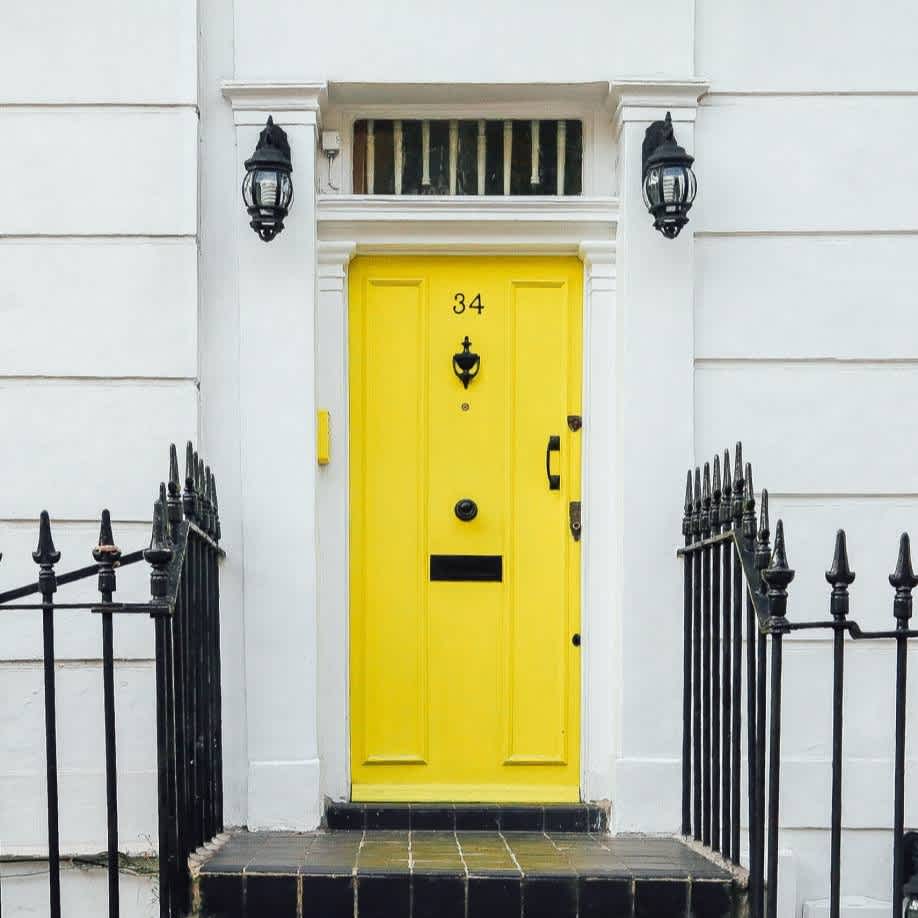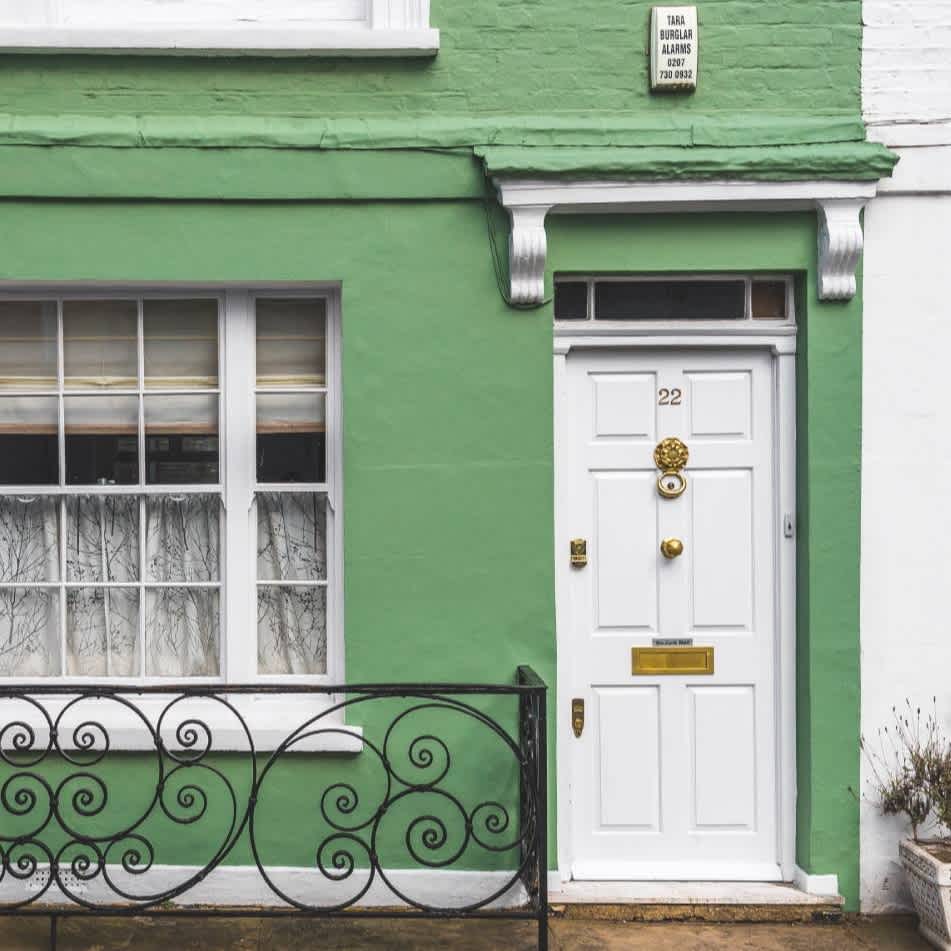Fixed-rate mortgages
Fixed-rate mortgages can protect you from rising interest rates, but are they the right option for you? Find out all you need to know about fixed mortgages with expert guidance from Better.co.uk.
A popular choice
90% of our first-time buyers, home movers, and remortgage customers applied for fixed-rate mortgages with us in the last 12 months
Get financial certainty
Fixing your mortgage means you can be certain of what you need to pay each month - no surprises
Secure a rate
Lock in a fixed rate mortgage now and avoid further base rate increases
Deciding which mortgage is the right one for you can be difficult without a bit of help. Our expert mortgage brokers can talk you through the different options to discover the most suitable mortgage for your circumstances.
What is a fixed-rate mortgage?
When you take out a mortgage, you’ll be charged interest on the money you’ve borrowed. Fixed-rate mortgages maintain consistent fixed interest rates for an initial period, meaning your monthly repayments will be the same each month for the length of your mortgage term.
A fixed-rate mortgage deal will allow you to fix your mortgage interest rate for a fixed amount of time (known as a fixed period).
Fixed rate mortgages are the most popular type of mortgage in the UK because they can help you to budget with consistent monthly payments.
Fixed mortgages won’t be the best option for everyone, so it’s important to do your research and speak to one of our expert mortgage advisers to find the right mortgage deal for you.
Should I fix my mortgage rate?
Whether or not you should fix your mortgage interest rate will depend on your financial situation and personal preferences. If you’re looking to repay your mortgage as quickly as possible by making large overpayments, a fixed-rate mortgage may not be the most suitable option for you.
Most fixed rate mortgages only allow you to make overpayments of 10% each year, though this can vary between lenders. If you overpay by more than the allowed amount, you’ll likely face early repayment charges.
Variable-rate mortgages such as standard variable rate and tracker mortgages typically don’t have early repayment charges, so if you’re looking to repay your mortgage quickly, then these types of mortgage deals may be a better option for you, but remember variable interest rates mean that you could end up paying more in interest if interest rates spike.
On the other hand, if you prefer the advantages of having a consistent monthly repayment over the next few years to help you budget, a fixed-rate mortgage could be a favourable choice.
Fixed-rate mortgages generally offer more cost-effective options compared to other mortgage products. However, if interest rates are currently high when you're in the market for a mortgage, you may want to consider a shorter fixed period or explore alternative mortgage types if you believe that interest rates are likely to decrease in the near future.
If you’re still struggling to decide whether or not to opt for a fixed mortgage deal, speak to one of our expert mortgage advisers, they’ll be able to discuss your options based on your personal circumstances.
Pros and cons of fixed-rate mortgages
Pros
Straightforward budgeting
Knowing how much you’ll pay towards your mortgage each month makes it easier to budget and plan.
Often cheaper than other mortgage options
Fixed-rate mortgage deals are typically cheaper than other types of mortgage, such as standard variable-rate mortgages.
Protected from interest rate rises
Even if interest rates rise, you won’t be charged more interest on your mortgage for the remainder of your fixed period.
Cons
Early repayment charges
If you need to move house, overpay too much or remortgage early, you’ll likely have to pay early repayment fees.
Won’t benefit if interest rates fall
If interest rates fall after you’ve taken out your fixed-rate mortgage, your mortgage payments won’t be cheaper.
Limited overpayments
Most fixed-rate mortgages restrict how much you can overpay on your mortgage each year before charging you early repayment fees, which could limit how quickly you’re able to become mortgage free.
How long should I fix my mortgage for?
If you’ve chosen to apply for a fixed-rate mortgage, it’s time to choose how long you want to fix your mortgage for. The most common fixed periods are:
3-year fixed-rate mortgages
Some lenders will offer longer term fixed-rate deals, like 10-year fixed-rate mortgages. Longer fixed-rate mortgages can be slightly more expensive than other deals.
Leaving a fixed-rate mortgage early
An early exit from a fixed-rate mortgage is usually possible, but there may be costs and fees to consider. Depending on the type of mortgage and your mortgage lender, these may include either exit fees or break fees.
If you decide to settle your loan earlier than the agreed term, these fees will need to be taken into account as well as any differences between interest rates.
It's also important to consider that if you leave your fixed rate early, you may not lock in the same rate with a new one. Taking all of these factors into consideration is vital before deciding if leaving your fixed rate early is the right option for you.
Before choosing a fixed term, there are some things you’ll need to consider, such as…
If interest rates are high, it might not be the right time to fix your mortgage interest for a long time. It may be worth getting a shorter term fixed-rate mortgage if you think mortgage rates are likely to come down in the near future.
On the other hand, if you think the current economic market is likely to bring mortgage rates up, it could be a good option to fix your mortgage interest rate for a longer period to avoid paying higher interest rates when you next remortgage.
For some people, knowing how much their mortgage payments are going to be each month is more important than getting the cheapest interest rates possible.
As long as you’re able to comfortably afford your monthly repayments, fixed-rate mortgages offer stability; knowing how much you need to pay each month can help you budget and effectively live within your means.
Remortgaging comes with additional costs which can include:
Arrangement/booking fees
Valuation fees
Conveyancing fees
Broker fees
Early repayment charges
Deeds release fees
If you remortgage regularly, it could end up costing you more in fees than you’ll save in interest by fixing your mortgage rates. It’s important to weigh up the costs carefully.
Being tied into a fixed-rate mortgage deal can make it more expensive to move house. Think about your future plans when locking into a fixed term to avoid costly early repayment charges.

2-year fixed rates
Find out how 2-year fixed rates work

5-year fixed rates
Our guide to how 5-year fixed rates work

Do I get a 10-year fix?
Discover the pros and cons of a 10-year-fix
Our expert says
Your monthly mortgage repayment is likely going to be your biggest monthly expense. Fixed-rate mortgages mean that your mortgage payments stay the same each month, regardless of market conditions. Knowing how much you have to pay every month can help you to budget and plan for annual expenses like family holidays. However, fixed-rate mortgages aren’t always the cheapest option, so it’s important to speak to one of our expert mortgage advisers to discuss your options and find the right mortgage for you.
Jonathan Bone - Lead Mortgage Adviser
How long should I fix my mortgage for? (and other FAQs)
Typically, when a fixed-rate mortgage deal expires, you’ll be moved to your current lenders standard variable rate (SVR). SVR mortgages can change the amount of interest they charge at any time and could end up being an expensive option.
If you want to stay on a fixed interest rate, you’ll need to remortgage. When you remortgage, you can take out a new fixed-rate deal with your current lender or move to a new lender.
Interest rates can fluctuate regularly, and you may find that your mortgage will be more expensive, even if you get a new fixed-rate deal.
It is possible to remortgage before your fixed-rate mortgage deal expires, however, you’ll likely need to pay early repayment charges if you do so.
Early repayment charges can be costly and could make moving to a cheaper deal more expensive than staying on your current rate.
You’ll need to work out if the amount you’ll save in interest outweighs the fees you’ll pay for leaving your fixed-rate mortgage early. Speak to your lender about how much they’ll charge you for leaving your deal early, because the amount may change the closer you get to the end of your term.
If you already have a fixed-rate mortgage, then no, your mortgage interest rate won’t rise, and your mortgage repayments will remain the same, no matter what happens in the market.
However, when your deal comes to an end, and you move to your lender's SVR mortgage or remortgage to get a new fixed-rate deal, you may find your interest rate will be higher than it was previously if interest rates have risen.
If you’ve already received a mortgage offer for a fixed-rate mortgage, the interest rate won’t change for as long as the offer is valid.
However, if you’re in the early stages of applying for a mortgage, you may find that the fixed-rate mortgage rates may go up if interest rates rise.
Unfortunately, you won’t be able to extend your fixed term when the initial period ends. Instead, you’ll need to remortgage if you want to stay on a fixed-term deal.
However, if you wanted to extend your whole mortgage term, you can; if you’re in a fixed-rate deal you may need to wait until your fixed-term is over to do so, depending on your lender.
There’s no simple answer as to whether fixed-rate mortgages are more or less expensive than other mortgage products. It will depend on the interest-rate you fix at and whether or not interest rates go up or down during your fixed term.
If interest rates rise during your fixed term, you’ll likely have a cheaper mortgage than those who have an SVR or tracker mortgage. However, if interest rates fall whilst you’re tied into a fixed mortgage, you may find that you’re paying more than those with variable mortgages.
Yes, you can move or ‘port’ your fixed-rate mortgage over to a new property on some mortgage deals. Check whether your mortgage allows you to do this.
If your mortgage is not portable then you’ll need to remortgage to a new deal, and this could be expensive if you’re in the middle of a fixed term.
Mortgage Calculator
Calculate what you could borrow using our simple mortgage calculator.
Mortgage Rates
See the latest fixed, variable, and interest-only mortgage rates from 100+ lenders.
Get a Mortgage in Principle
Get your free Mortgage in Principle to show estate agents you're a serious buyer.
What people are saying about Better.co.uk...
Get a mortgage with Better.co.uk today
Our remortgage customers saved an average of £290 a month in August 2023*
Better.co.uk is a fee-free mortgage broker
5-star Trustpilot rating from over 5,000 reviews
Compare mortgage deals from over 100 lenders
Skip the paperwork: apply online any time
Important info & marketing claims
You may have to pay an early repayment charge to your existing lender if you remortgage. Your savings will depend on personal circumstances.
Your home may be repossessed if you do not keep up repayments on your mortgage.
*The savings figure of £406 is based on Better.co.uk remortgage customers in February 2024. Read more on our marketing claims page.
We can't always guarantee we will be able to help you with your mortgage application depending on your credit history and circumstances.
Average mortgage decision and approval times are based on Better.co.uk's historic data for lenders we submit applications to.
Tracker rates are identified after comparing over 12,000 mortgage products from over 100 mortgage lenders.
As of January 2023, Better.co.uk has access to over 100 lenders. This number is subject to change.
For buy-to-let landlords, there's no guarantee that it will be possible to arrange continuous letting of a property, nor that rental income will be sufficient to meet the cost of the mortgage.
